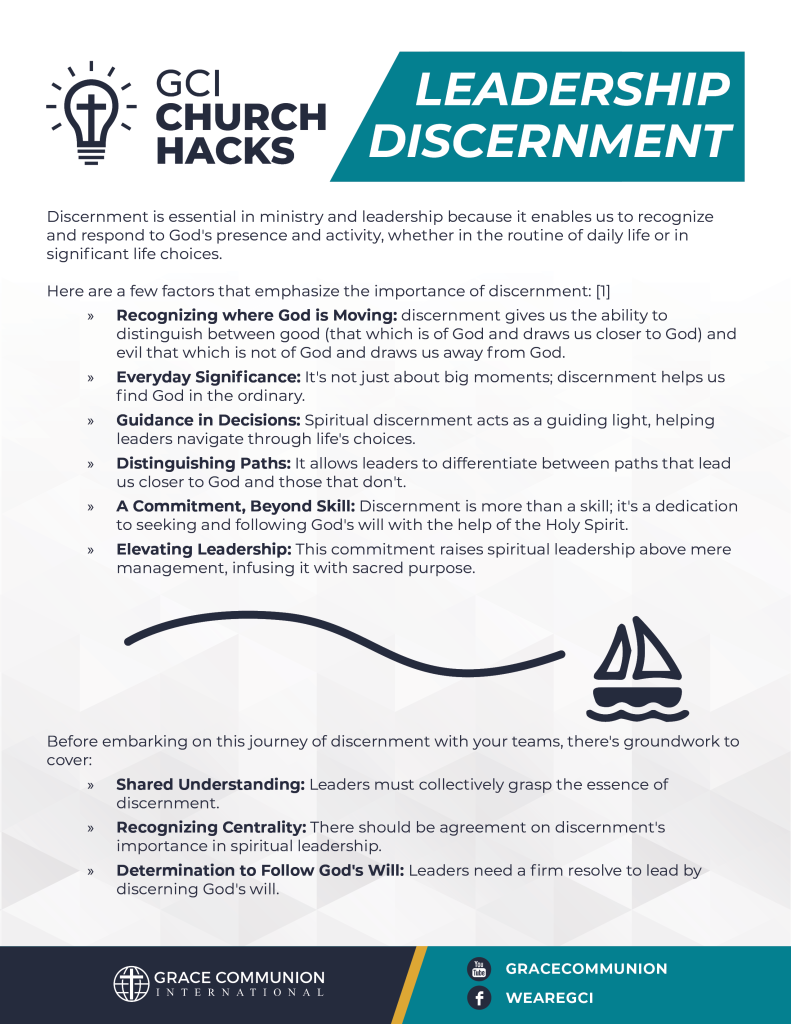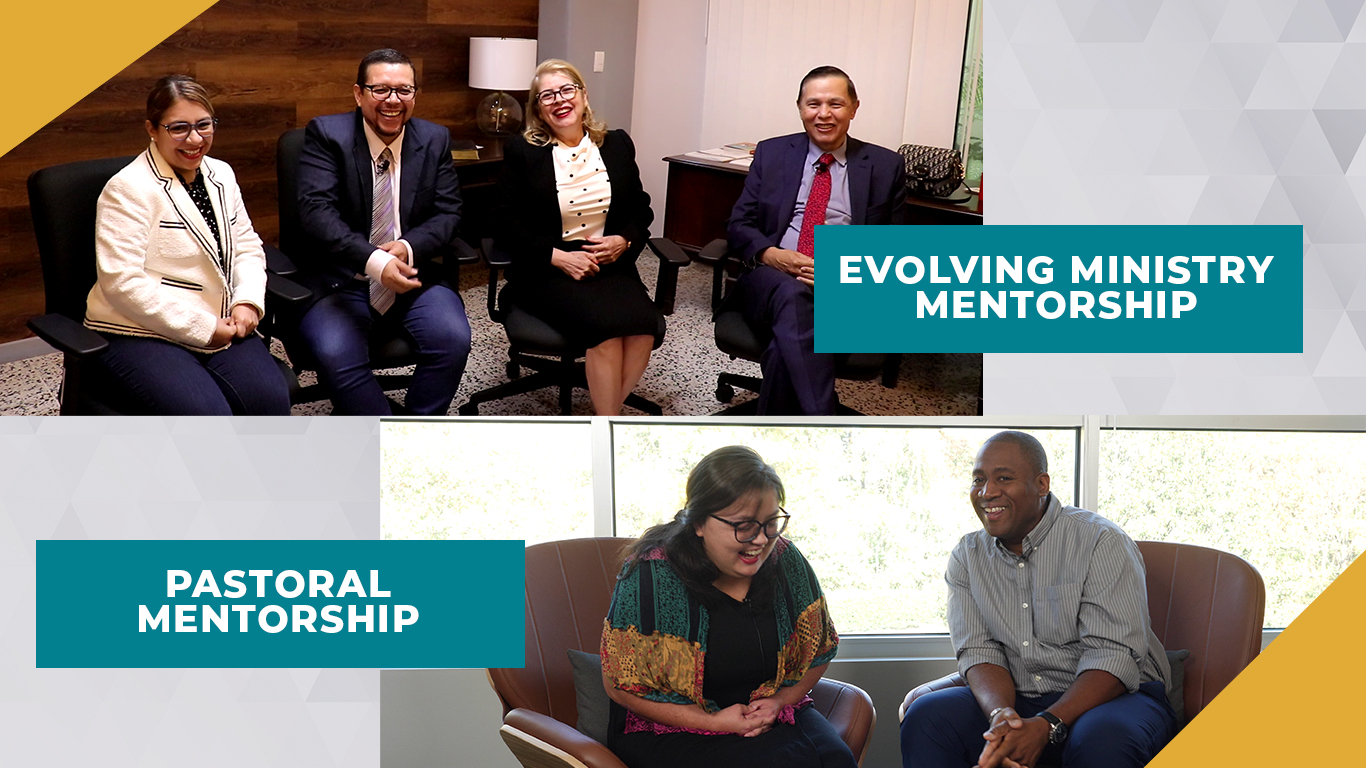The Fullness of God w/ Simon Dent
Welcome to the Gospel Reverb podcast. Gospel Reverb is an audio gathering for preachers, teachers, and Bible thrill seekers. Each month, our host, Anthony Mullins, will interview a new guest to gain insights and preaching nuggets mined from select passages of Scripture in that month’s Revised Common Lectionary.
The podcast’s passion is to proclaim and boast in Jesus Christ, the one who reveals the heart of God, Father, Son, and Holy Spirit. And now onto the episode.
Anthony: Hello friends and welcome to the latest episode of Gospel Reverb. Gospel Reverb is a podcast devoted to bringing you insights from Scripture found in the Revised Common Lectionary and sharing commentary from a Christ-centered and Trinitarian view.
I’m your host, Anthony Mullins, and it’s my joy to welcome our guest, Simon Dent. Simon is the lead pastor of the Coromandel Valley Uniting Church, often referred to as the CoroUniting Church, near the city of Adelaide, Australia. I got connected with Simon through our mutual friend and a previous podcast guest, Jenny Richards. Thanks, Jenny.
The Uniting Church believes in God as the Trinity: God the Father, God the Son, and God the Spirit. They believe God is at work, hallelujah, reconciling the whole of creation in Christ, and that they are called to be coworkers in that vision, and that’s a vision we can all get behind. Simon is married to Carolyn, and they have three daughters, Jessie, Tilly, and Trinity.
Simon, thanks for being with us and welcome to the podcast. And since this is your first time on Gospel Reverb, we’d like to get to know you a little bit, about your story and how you’re joining with Jesus’ work these days.
[00:01:49] Simon Dent: Yeah. Thanks Anthony. It’s great to be with you. And I’ve just really been blessed by listening to the Gospel Reverb episodes in the past.
Yeah, it’s been a wonderful joy for me to share and walk with Jesus as a minister in the Uniting Church. I actually became a believer when I was 21 years old. I grew up in a troubled family and was really seeking to know something of God, the love and the meaning of life.
I basically got loved into the kingdom by a group of people who joined me, asked me to play volleyball with them through the youth group. And I was 21 years old and just drawn into that. And there was a moment when I went to a church camp and the Spirit just pointed me again to Jesus and actually said, “Can’t you just see how much I love you? Just come.”
And I had all sorts of questions I needed to work out. But he said, look, we’ll work on these questions as we go. The main thing is for you to know my love for you. And it just transformed my life, that moment. And from that moment, I just got to join with Jesus in sharing the gospel with people.
And yes, I’ve been doing that for nearly 20 years now in the Uniting Church. And I started off actually as a TV cameraman, so I was doing that for 15 years. So, it’s been quite a changing career. It’s been a great joy for me to do that.
[00:03:26] Anthony Mullins: I’m just fascinated by the way you phrased it: you were loved into the kingdom through volleyball. What a beautiful image, and God is at work in our play, in our work. Hallelujah, praise him! May we all be loved further and further into the kingdom.
All right, let’s do this. We have several lectionary passages we’re going to be discussing today.
Mark 6:1-13, “Shake It Off”
Ephesians 1:3-14, “Chosen”
Ephesians 2:11-22, “But Now”
Ephesians 3:14-21, “The Fullness of God”
The first passage of the month is Mark 6:1-13. I’ll be reading from the New Revised Standard Version, the updated edition. It is a Revised Common Lectionary passage for Proper 9 in Ordinary Time, July 7.
He left that place and came to his hometown, and his disciples followed him. 2 On the Sabbath he began to teach in the synagogue, and many who heard him were astounded. They said, “Where did this man get all this? What is this wisdom that has been given to him? What deeds of power are being done by his hands! 3 Is not this the carpenter, the son of Mary and brother of James and Joses and Judas and Simon, and are not his sisters here with us?” And they took offense at him. 4 Then Jesus said to them, “Prophets are not without honor, except in their hometown and among their own kin and in their own house.” 5 And he could do no deed of power there, except that he laid his hands on a few sick people and cured them. 6 And he was amazed at their unbelief. Then he went about among the villages teaching. 7 He called the twelve and began to send them out two by two and gave them authority over the unclean spirits. 8 He ordered them to take nothing for their journey except a staff: no bread, no bag, no money in their belts, 9 but to wear sandals and not to put on two tunics. 10 He said to them, “Wherever you enter a house, stay there until you leave the place. 11 If any place will not welcome you and they refuse to hear you, as you leave, shake off the dust that is on your feet as a testimony against them.” 12 So they went out and proclaimed that all should repent. 13 They cast out many demons and anointed with oil many who were sick and cured them.
Simon, Jesus was on his home turf in Nazareth, and the thought process is that the locals will receive their homegrown prophet, right? And yet, they found him offensive, and as a result, they didn’t experience his power full on.
What should we know and learn from this?
[00:06:13] Simon Dent: I think one of the main things we need to know and learn from this is we just take Jesus on his own terms and not just to look at him through the lens of our own weakness. There’s a phrase we will know: familiarity breeds contempt.
And I think I’m particularly challenged by verse 5, which says, Jesus could not do a deed of power there, except lay his hands on a few sick people and cured them. Man, if we were doing that, we would be pretty amazed, wouldn’t we?
But he was amazed at their unbelief. I think they had such a low expectation of Jesus because they saw him through their own shame. And they desperately needed him not to show up their own weakness. He was one of them. We have this idea that we know what people from Nazareth are like and what they should do.
And to have a guy who stands before them doing these amazing deeds of power with the anointing of the Holy Spirit (as Luke picks up in his version of this story), to proclaim the good news to the poor, freedom for prisoners, recovery of sight for the blind, setting the oppressed free. Oh, absolutely amazing!
But guys from Nazareth don’t do that. And so, his glory, his humanity really showed them up. We probably understand this from my cultural context in Australia. We have a very high value on egalitarianism, but we also have this phenomenon called the tall poppy syndrome. And we basically can tend to criticize or cut down people if they’re too successful, primarily because they show the rest of us up.
We don’t like being shown up by their success. I went to high school, and we had a nine-year-old who was doing year 12 maths. And he was this amazing guy. And man, did I look dumb next to him in terms of maths ability.
So, I think the beauty of Jesus’ humanity here really showed the ugliness of theirs, and they had a real problem with that. And they couldn’t see that, like all of us, they’ve got two choices. They can either give themselves to his beauty, to his grace, by him taking them in all of their brokenness. Or they could just push Jesus away. And they either see Jesus through the lens of their own failure, or they try and take him from his own word as to who he is.
The apostle Paul talks about the offense of the cross. I think the similar thing is going on here. If we live in the denial of our corruption or our need for God to remake humanity in Jesus’ death, then his death is going to be an offense and a good reason, ultimately, for us to reject Jesus. The writer of Hebrews in chapter 2 says, “He had to become like us, his brothers and sisters, in every respect, so that he might become the merciful and faithful high priest in service to God, and to make a sacrifice of atonement for the sins of people.” [verse 17]
So yes, we can see familiarity can breed contempt, but familiarity saves us. And thank God that Christ has become one with us. And his kindness and his knowledge of our humanity, his familiarity, what it meant to be human and his death on the cross — in all of that, leads us to repentance and a change of mind about who Jesus is.
Romans 2 also says, “Do you despise the riches of his kindness and forbearance and patience? Do you not realize that God’s kindness is meant to lead you to repentance?” [verse 4] What might we hear in this? I think we need to hear something in terms of our expectations of what Jesus can do amongst us.
That we take Jesus on his own terms and not just look at him through the lens of our own powerless humanity. And in many ways, just start seeing him as he is. And allow our expectations to rise as what Jesus might actually do through us and in the world as we just see him, rather than just see him through the lens of our own human brokenness.
[00:11:02] Anthony Mullins: Well said. Can anything good come out of Nazareth, right? The very best thing can. And I can remember feeling as a young kid, because I came from a small town in the hills of Kentucky, feeling less than. But what matters is the power and presence of God at work in the lives of people, regardless of where we’re from.
And I tell you what, it’s a sport over here, Simon, where we love to build people up, but we love just as much, maybe even more lustily, to tear them down. And you’ve pointed out that was at work here in this passage.
Simon, Jesus told his disciples to shake off the dust as a way of showing that their testimony, the good news wasn’t received. And as I was thinking about this, I thought of the contrast of Jesus, who is the embodiment, the fullness of good news, when he spoke the words of forgiveness from the cross, he wasn’t received by his own. So, in thinking of that, help us understand and maybe reconcile, as it were, the difference and how it impacts our participation in God’s mission to the world.
[00:12:16] Simon Dent: Yeah. Because the question behind that is, will Jesus dust off his feet to me, in a sense, if someone’s not [inaudible]. And so, I think we really need to make a distinction between who Jesus is and what Jesus has done for the whole world in his death and resurrection, and ultimately what the disciples are called to do as witnesses and proclaimers of what Jesus has done.
I don’t think we are saying here that Jesus is going to see anybody in the world and say, you are the ones that I’ll accept, and you are the ones I won’t, because before the foundation of the world he died for us. None of us are worthy of God’s mercy and grace. It was just his pure unadulterated love for all sinners in the world.
So that Jesus’ own reality to the people, those who receive him, those who reject him is not a sign necessarily of his love or what he’s done for them on the cross.
So, I think what Jesus is ultimately saying in that phrase (if they don’t receive you, dust wipe the dust off your feet), he’s basically saying to the disciples, just this is a warning for them. It’s, in some ways, a symbol for them that they’ve got to put their faith and their hope in Christ because they can’t save themselves according to their own efforts.
But it’s also to the disciples to recognize your own responsibility and what is actually possible for you. What are the limits of what you can actually achieve?
I was really helped some years ago by a book by Andrew Purves, The Crucifixion of Ministry. You may have read it. One of the things that’s so profound from there is as soon as I take up my ministry as my ministry Jesus will gladly crucify us on that. It’s a mercy where he says, no, it all belongs to me.
And sometimes we can look at our friends and we can — even every Sunday when I get up and I start preaching the gospel, I think this is amazing. Everybody’s just going to bow down and worship God and hear this. And often there’s just dull faces where, yeah, we heard this before.
And I sometimes think, man, if I know I could take the power of the Spirit that is in Christ and allow people to see these things and their lives is suddenly going to change. And I just realized there are limits as to what I ultimately can do.
I think what Jesus is saying here. When you’re going into a town and you’re sharing the good news of the gospel, and people are not responding. And it might even be a close friend of ours, that we’re just sharing about Jesus, and they’re just not responding. We have no reason why they are not responding, reacting in the way that we’ve reacted to that. So, Jesus is actually saying move on.
There are other people who do actually welcome that, and don’t spend all of your time and your energy in some ways, trying to do something which in your own strength are not going to be able to do, but turn around. There’s maybe somebody else in that town or that community that’s really going to respond to the gospel.
And Luke calls these people the persons of, the people of peace, people in some ways who God has already prepared to receive the gospel. Bring that word to them. And ultimately, we’ll leave everybody in the hands of God here. God is a God of mercy and grace, but for those of us who are called to bear witness to the gospel amongst our friends and in our families, realize that we can’t raise the dead. But we’re called to proclaim the wonders of Christ.
And if some people are closing their eyes to that, it doesn’t mean we stop loving them, or we stop praying for them. But it does mean don’t get so uptight as though somehow, it’s up to us to try and bring salvation to these people. Move on to others who may actually be more responsive to the gospel.
[00:16:25] Anthony Mullins: Yeah. Go with those that want to go with you. And likewise, and I love what you said about the book from Purves, Crucifixion of Ministry. And another way I see that at work, you mentioned when you preach a good one, you think everybody’s going to receive this.
But on the flip side of that, I’ve given some real stinkers of sermons thinking, oh, I’ve just let everyone down. And that’s when people respond. It’s just an extraordinarily humiliating, but in the most positive way, thing to realize it’s Christ’s ministry. It’s not mine. His good purposes are going to prevail with or without me, but he chooses to do it with me.
Hallelujah. Praise God.
[00:17:10] Simon Dent: That’s brilliant. So good to know that Jesus is the one in control of his ministry and his love. And he invites us into that amazing gift of what he’s actually already doing. And just to put our trust and our hope in that means you can have a dud of a sermon or an amazing sermon, that ultimately doesn’t really matter because Christ is at work.
[00:17:34] Anthony Mullins: Yes, Simon, it allows you to exhale. And just be like, ah the pressure’s off. There is a response ability by the Spirit, if you will, we can respond to what God is doing, but that’s it. He’s already at work. So, Lord, give us eyes to see what you’re doing and the courage just to join in with our whole hearts.
Let’s pivot to our next passage of the month. It’s Ephesians 1:3-14. It is the Revised Common Lectionary passage for Proper 10 and Ordinary Time on July 14. Simon, would you read it for us, please?
[00:18:18] Simon Dent: Love to.
Blessed be the God and Father of our Lord Jesus Christ, who has blessed us in Christ with every spiritual blessing in the heavenly places, 4 just as he chose us in Christ before the foundation of the world to be holy and blameless before him in love. 5 He destined us for adoption as his children through Jesus Christ, according to the good pleasure of his will, 6 to the praise of his glorious grace that he freely bestowed on us in the Beloved. 7 In him we have redemption through his blood, the forgiveness of our trespasses, according to the riches of his grace 8 that he lavished on us. With all wisdom and insight 9 he has made known to us the mystery of his will, according to his good pleasure that he set forth in Christ, 10 as a plan for the fullness of time, to gather up all things in him, things in heaven and things on earth. 11 In Christ we have also obtained an inheritance, having been destined according to the purpose of him who accomplishes all things according to his counsel and will, 12 so that we, who were the first to set our hope on Christ, might live for the praise of his glory. 13 In him you also, when you had heard the word of truth, the gospel of your salvation, and had believed in him, were marked with the seal of the promised Holy Spirit; 14 this is the pledge of our inheritance toward redemption as God’s own people, to the praise of his glory.
[00:20:00] Anthony Mullins: Whew, man that’s some full-on good news right there. I tell you what, this pericope is a theological tour de force. So, I want to give you a few minutes here just to riff on the good news contained within. So, preach, preacher. Let us hear it.
[00:20:22] Simon Dent: When you gave me this passage, I was thinking, Oh man, this is brilliant, what a great passage to talk about.
And then I thought five seconds later, man, how can I ever do this justice? It is such a vision of the amazing grace of God that’s come to us in Jesus Christ. And the drawing in of us by the Father in all that Christ is in his relationship in the power of the Spirit. And it’s just a beautiful gift for those of us who don’t deserve such an amazing thing. And yet it is God’s heart and is God’s love upon us, which flows out of this.
One of the things that we’re preaching and teaching on a text like this — it’s so easy for us to pull out the component parts and somehow lose the fact that this is really just an overflow of Paul’s heart. It’s an expression of worship and praise to God, as God has revealed all that he has done in Christ. And we just need to join with him [Paul] in praise, in some ways.
And the challenge is trying to hold onto the fact that — maybe it’s not a challenge — actually the joy of this is that we get to hold on to the great joy of this relationship that God has given to us in Christ. It’s so big and in some ways, you have — how do we even start with this? But I’ll have a go.
One of the key echoes in all of this is that we are in Christ. We are joined together in the relationship that Jesus himself has with his Father through the power of the Spirit. And that’s staggering and wonderful. And Paul goes into some theological depth as to what ultimately that means.
One of the key words in the very first passage — of verse 3, sorry, speaks of “bless” three times. Blessed be the God and Father of our Lord Jesus Christ, who has blessed us in Christ with every spiritual blessing in the heavenly places. The word there for bless is eulogetos, and it’s the word that we get eulogy from — a eulogy at a funeral where you speak words of praise to the dead loved one who’s just passed.
And so, he uses this word as the blessing or the praises from us towards God, praising God for all that he’s done. But the second time, the same word of bless is used actually from the Father, that the father has blessed us, or in some ways, the Father has eulogized us in Christ.
In other words, the word that Jesus says that the Father says about us is a word of God’s praise. Because we’re actually in Christ. What I mean by that is God has eulogized or spoken a good word about us. God has noticed us. He said something about us. And we all desire to be noticed and loved and what a blessing that is.
And God speaks that good word to us. And the word that he’s spoken is the word of Jesus Christ. Hebrews 1 says, “Long ago, God spoke to our ancestors in many and various ways by the prophets, but in these last days, he’s spoken to us by a Son, whom he appointed heir of all things.” [verse 1]
So, Jesus is the good word, the word of praise, the word of joy, that the Father actually speaks about us, speaks to us. Every spiritual blessing in Christ, every good thing that can be said in heaven, we have in Christ. His relationship with the Father, his dynamic of love and the Holy Spirit, the freedom that he has, freedom from our own sin and our own brokenness, all of that has actually been given to us in Jesus Christ.
That’s what ultimately that blessing is for each of us. It is incomprehensible, but it’s true. Particularly when we’re so aware of our own sin and our shame this is an amazing grace, but it is all a part of a plan, as Paul says. And the plan says for the fullness of time to gather all things in him, things in heaven and things on earth.
So, when you get up, you look around the world, you look at yourself in the mirror, you look at our churches, our families, we say God’s got a plan. He’s going to gather all of this up in Christ. And that’s ultimately where our hope is. And I think that’s part of the expression of life and joy that Paul expresses here.
So, it’s like he chose us even before the foundation of the world. So, we don’t think of ourselves according to our behavior, whether we think ourselves too highly so that God’s chosen me because I’ve done all the good things, or that God’s rejected me because I’m a bad person and therefore I wasn’t chosen.
Before the creation of the world, Christ was chosen, and we were chosen in him to be holy and blameless. And this idea of holy and blameless is set apart relationally in love. It’s not just about morality. It’s not just about doing good or doing the right thing. Although that’s certainly very much a part of it, but it is primarily about relationship. That God has drawn us into this relationship of love, and everything is removed. All unholiness is removed because we are set apart to be in relationship with the Father. And that was his plan before the foundation of the world. And it goes on, so much more — destined us for adoption as his children according to his good pleasure. I love, all through this, you get these moments where Paul is expressing: God has not done this begrudgingly.
He’s not just saying, oh, I’m a good God; it’s my job to save these people. I will say, this is according to his will and his good pleasure. He’s chosen us. And so, what a joy that is to be delighted in and chosen. And that word adoption, it’s just a beautiful family word: given full rights of sons and daughters in Christ.
And yeah, just a great gift of all that we have in Christ: redemption through his blood; that gift of being saved and healed in the death of Christ; the forgiveness of our sins. And again, it’s according to the riches of grace that he lavished on us. It wasn’t under compulsion that God forgave us. It was because of the riches of his grace.
And that word lavished — I just think of eating too much cream on a bun or something like that. It’s a lot of — an overflow of his love. And with that, he doesn’t just save us, but he’s included us into his own knowledge of that will and purpose and plan.
We read in other places where we’ve been given the mind of Christ in that. So, we become full participants really, on the knowledge of God in all of this. In Jeremiah, we read:
“No longer will they teach their neighbor, or say to one another, ‘Know the Lord,’ because they will all know me, from the least of them to the greatest,” declares the Lord. “For I will forgive their wickedness and remember their sins no more.” [Jeremiah 31:34]
Yeah, we’ve been drawn not only into this relationship, he’s revealed not only himself and his love, but also his plan to gather all things up together in Christ. And finally — sorry, there’s so much here, isn’t there?
And finally, I’ll just say, all of this, ultimately, is for the praise of God’s glory. And say, what does that ultimately mean? It means as partners together with Jesus Christ, as participants in the divine triune life, being adopted as sons and daughters in Christ, we therefore become eulogizers of God so that many others may hear the good news of the gospel and be sealed by that down payment of our Holy Spirit.
To be eulogizers of God so that others may also be sealed with the down payment of our inheritance, the Holy Spirit. So it is all, great grace and love and that calling to bring glory to God is participating in that good work of bringing everything together in Christ (as Christ is doing it), by speaking good words about who God is and what God has done for us, because God has spoken a good word about us in Christ.
[00:29:17] Anthony Mullins: Yes. Thanks be to God that he is not reluctant in his salvation, that Jesus was not a reluctant Savior. But for the joy set before him, he went to the cross. And we know the atonement is just part of salvation, but it’s a significant part. And we’re so grateful for the words contained in it.
It’s almost like Paul is just bursting at the seams with good news. And it’s hard to contain the words in such a brief passage. And you pointed us to verse 4. God chooses us in Christ, the Father chose us in Christ, before the foundation of the world, which tells us something about us. But I think more importantly, it tells us something about the chooser, the God who chooses.
And that brings me to the next question I want to ask you. It just seems to me, Simon, that the big “C” church, the global church, has really emphasized the doctrine of justification. And thanks be to God that we are justified, right? But on some level, we have therefore de-emphasized or not emphasized our adoption as children through Jesus Christ.
And you alluded to it’s a beautiful familial term. So, is that a fair assessment? And if so, why should adoption take more, let’s say homiletic prominence in our churches?
[00:30:39] Simon Dent: Yeah, I’ve been thinking about that. And yes, I think the emphasis has been largely on justification and maybe not enough on adoption, partly because we see, again, perspective from our own views of what is needed. We see the glory of God. We read the Old Testament, and we see how God has provided means of justification for the Old Testament people through the sacrifices.
We read the New Testament. We see such amount of time given to the death of Christ on the cross — that is usually the pinnacle moment of our story. And yet, so little time really [given] to the resurrection and life beyond that. I think what Paul has given in this opening passage of Ephesians is, in some ways, a step back and actually see the ultimate purpose and the plan for what [inaudible].
And the plan actually is adoption. The plan is that they would be — that the whole world would be justified. That we can actually be in relationship with the Father and enjoy the joy that God himself enjoys as Father, Son, and Spirit in this dynamic of love and joy and all of that. It’s something that God wants us to participate in.
I think for a lot of us, we see through the lens of our own sin and our shame and our brokenness. And we look to the solution, and we see here on the cross is solution. And in many ways, some of our preaching has been about how do we get people to come to this moment of faith where they can put their trust in the fact that their sins are forgiven, and they’re brought into relationship with God.
And yet we fail in some ways to see what that life ultimately means, which is adoption and joy and delight. And maybe that’s one of the reasons why we haven’t emphasized adoption much because we feel as though we’ve got to get to the problem. Let’s get people saved rather than recognizing Christ has saved us.
Let’s just walk in the joy of what that means. And the more we can walk in joy, the more beautiful our proclamation ultimately will be about justification.
[00:33:02] Anthony Mullins: Well said, sir. Thank you.
Let’s pivot to our next passage of the month. It’s Ephesians 2:11-22. It’s the Revised Common Lectionary passage for Proper 11 in Ordinary Time, which is July the 21. And it reads:
So then, remember that at one time you gentiles by birth, called “the uncircumcision” by those who are called “the circumcision”—a circumcision made in the flesh by human hands— 12 remember that you were at that time without Christ, being aliens from the commonwealth of Israel and strangers to the covenants of promise, having no hope and without God in the world. 13 But now in Christ Jesus you who once were far off have been brought near by the blood of Christ. 14 For he is our peace; in his flesh he has made both into one and has broken down the dividing wall, that is, the hostility between us, 15 abolishing the law with its commandments and ordinances, that he might create in himself one new humanity in place of the two, thus making peace, 16 and might reconcile both to God in one body through the cross, thus putting to death that hostility through it. 17 So he came and proclaimed peace to you who were far off and peace to those who were near, 18 for through him both of us have access in one Spirit to the Father. 19 So then, you are no longer strangers and aliens, but you are fellow citizens with the saints and also members of the household of God, 20 built upon the foundation of the apostles and prophets, with Christ Jesus himself as the cornerstone; 21 in him the whole structure is joined together and grows into a holy temple in the Lord, 22 in whom you also are built together spiritually into a dwelling place for God.
Simon, for me, the two words “but now” are two of my favorite words in the entire New Testament, because it links what was to what is the reality in Christ. And verse 13 is one of those, “but now” bridges. Would you tell us about it, please?
[00:35:14] Simon Dent: Yeah, it’s a beautiful picture of looking back seeing what was, but looking who we are now in Christ.
I think of Karl Barth’s, “nevertheless of God’s faithfulness,” here. All that we can see about ourselves, all of our sin, all the ways in which we are not ultimately what we’ve wanted to be. And yet we hear that great word of “nevertheless.” You’re mine. I’ve chosen you. I’ve loved you. And I will do what I need to do to make sure that you are restored and renewed and brought into fellowship with me.
And so we just see all of the “was”’s there as well: dead in transgressions and sins (earlier in chapter 2), enslaved to the lusts and the desires of the flesh; deserving of God’s wrath; separated from God’s covenant people; outsiders of the promises given to Abraham without the fulfillment of the covenant in Christ, or not knowing that; aliens without hope and without God.
And then, but now we have that moment. Once we were far away, now we’ve been brought near by the blood of Christ. We’ve been raised up with Christ by grace, not by works, but just by his amazing grace. And now we’ve been given good works to do. So not only have we been saved and brought into this relationship, we participate by the Spirit in what God is doing.
And ultimately that means that we have peace, deep peace with God, but ultimately that calling of peace to one another where what separated us has been broken in the death of Christ. And ultimately that’s the wall of our judgment of each other, according to the law.
But we’ve all been judged in the death of Christ now. And we’ve been justified in his resurrection. And so that’s the peace we have with God. Therefore, we see each of us on the same plane in that. And the calling then is to walk in peace with one another.
[00:37:33] Anthony Mullins: Verse 14 tells us that Jesus himself is our peace. And we read about, as you just talked about, this one new humanity, the dividing wall of hostility has been crushed in Christ. As I look about me, there’s wars, ideological differences, sectarian strife, suspicion of neighbor and nations, political rancor, and just a general lack of respect and civility for the other.
One new humanity living in peace and reconciliation, it can seem like it’s pixie dust or a fairytale instead of Christological truth. And yet we trust that scripture is pointing us to the truth. So, tell us about that. What’s going on? And what do we do in light of this gospel proclamation?
[00:38:27] Simon Dent: Yeah, I think we live in the now and not yet, where all of this is true about us. And yet our own minds still need to be further transformed by the Spirit so that what is ultimately true about us can be something that is demonstrated in a way that we live and accept one another.
In many ways, you look at the world and you see everybody is either ruled in or ruled out according to some kind of law, whatever that might be — a way of seeking to have power over others. But the reality of what Christ has done in actually coming and saving sinners, lifting them up to, be adopted in Christ and to know the joy of the Father, and therefore be those who demonstrate peace is something that takes a while for our brains and our hearts and our minds to really understand.
And so, we continue to go back to the gospel, we continue to hear this truth, we continue to listen to podcasts like yours, so that the Spirit can take what is true to that reality, bring peace to our own hearts. When we have peace in our own hearts, then we can extend that peace to one another.
But yeah, you look at the world and this vision of union, even within churches and within our own families, even in ourselves, when we look at the mirror, this is not ultimately what I see, but we live in hope.
And the hope is there is an objective reality that’s happened to us in Christ. And if we fix our minds on that, fix our minds on him, the author and the perfecter of our faith, we find that the Holy Spirit does bring us a deeper freedom in that. So, we are enabled to deal with issues, face the difficulties that separate people, and seek to bring a word of peace in that situation.
But it is a vision for really the end of time as well. Ultimately, we long for that day when Christ will actually put an end to all types of division with people. And that is the day that’s coming.
[00:40:41] Anthony Mullins: Hallelujah. Praise God that it is, and we do long for it.
And I appreciated what you said about, I’m talking about what I see about me on the exterior, but you also identified this warring is going on internally that way. I want to believe; I am a believer, but help me in my unbelief, Lord.
And I think of what Bart said, “I was, and I am the old man. I am and will be the new man.” There is still this tension as we long for the not yet aspect. Yeah.
[00:41:18] Simon Dent: Yeah. Amen. And that gives us hope, doesn’t it? To make sure that there is a not yet, means that you can look at this world and actually say, but the yet, it’s coming.
[00:41:31] Anthony Mullins: Amen. We’re in the home stretch.
We’re moving to our final pericope of the month. It’s Ephesians 3:14-21. It is a Revised Common Lectionary passage for Proper 12 and Ordinary Time, which falls on July 28. Simon, we’d be grateful if you’d read it.
[00:41:49] Simon Dent:
For this reason I bow my knees before the Father, 15 from whom every family in heaven and on earth takes its name. 16 I pray that, according to the riches of his glory, he may grant that you may be strengthened in your inner being with power through his Spirit 17 and that Christ may dwell in your hearts through faith, as you are being rooted and grounded in love. 18 I pray that you may have the power to comprehend, with all the saints, what is the breadth and length and height and depth 19 and to know the love of Christ that surpasses knowledge, so that you may be filled with all the fullness of God. 20 Now to him who by the power at work within us is able to accomplish abundantly far more than all we can ask or imagine, 21 to him be glory in the church and in Christ Jesus to all generations, forever and ever. Amen.
[00:42:47] Anthony Mullins: I want to read that again. “He is able to accomplish abundantly far more than all we can dare ask or imagine.”
And I’ve got a pretty vivid imagination, Simon, but that’s astonishing that this is the God who we’re in relationship with. Verse 19 gives a prayerful statement from Paul that all would know the love of Christ that surpasses knowledge. And a little insight on me, my faith tradition as a youth held up knowledge, especially biblical knowledge, as the pinnacle of Christian life.
For those in our listening audience who may have had a similar experience as the one I described, share with us how the love of Christ is superior to the factual comprehension of the scriptures.
[00:43:38] Simon Dent: Yeah. It’s not to deny that knowledge and having good information about Christian faith, about who God, is not important. We read in Proverbs that call, “Get wisdom, get understanding.”
But we see that it’s a problem that has happened throughout history. We see that in Jesus’ own reaction with the Pharisees. In John 5, he speaks to the Pharisees and said, “You study the Scriptures diligently because you think in them that you have eternal life. These are the very Scriptures that testify about me.” [verse 39]
So, Jesus is clearly saying the scriptures don’t actually have the eternal life. I am eternal life, and these scriptures actually testify about me, and you need to come to me to actually experience eternal life. One of the problems about a community that’s so focused on knowledge is that relationally you can tend to rule people in or out according to whether they fit within your particular understanding of what you’ve gained.
I was once in a community that was all about preaching the grace of the gospel. And often what they taught was just so beautiful and life-giving, it made your heart sing. But I never really felt safe amongst those people, in case, I suddenly maybe had a slightly different take on something that was in some ways the accepted norm.
And it just made me realize maybe even in preaching the good news of the gospel and understand the good news of the gospel, we can, in some ways, rule people in or out because we are trusting more in our knowledge and our understanding and our theology — of getting it all right rather than actually allowing that theology to actually lead us to Jesus Christ and his expansive beauty that embraces us all, that gives us the freedom to maybe explore a little, play a little with our understandings of the scriptures without that sense of necessarily being ruled in or out because we haven’t actually got it right.
So yeah, unless knowledge leads us to a relationship with God, then it’s not the knowledge that comes from the Spirit.
[00:45:59] Anthony Mullins: That’s right. If theology or understanding of God and the scriptures, they don’t lead us to worship, something’s wrong. If they don’t lead us to love, something’s amiss, right?
[00:46:10] Simon Dent: Yeah, that’s right. That’s right. And it’s not just love for God. It’s ultimately that love for one another and expansive openness towards one another as well.
And I think in the tradition that I grew up, there was very much a lot of love for God, but there were barriers, and we were wary about other people, particularly people who might think a little bit differently. So, it didn’t necessarily lead us out to that love of one another.
[00:46:35] Anthony Mullins: Yeah, that’s so well said.
I’ve met people (and I’ve done this on some level myself) where because the scriptures were held up as the pinnacle and knowledge of them — and again, like you so well stated, we need to know the scriptures for sure, because they do point us to Jesus — but I’ve known people that had spent hours and hours studying their Bible every day, but they didn’t allow the Bible to study them.
And what I mean by that is to examine their lives, to call them to have an unction to go out and love their neighbor. This has got to get expressed somehow to your fellow brother and sister. And if it doesn’t, then again, we need to go back and allow the word to examine us, as we read the written word for sure.
Simon, as a final request before we end our podcast episode. I’m just going to ask you to share how you’ve personally experienced the gospel glory that God is able to accomplish abundantly more than you could ask or imagine.
[00:47:38] Simon Dent: This is a very special verse for me because it was a verse that I shared at my wedding day, when I looked at my beautiful wife. And I just was thinking, man, who am I to be blessed in such a way to have such a beautiful person to journey life with?
And I was just struck by this first that God knows us and gives us more than we ever ask or imagine. And so that was a joy for me, particularly for me coming from a family where there was a fair bit of dysfunction. There was love there for us, but I grew up as a child feeling pretty insecure and unsafe because there was a bit of violence in our family.
And to be brought into a place, a home, if you like, where you’re actually deeply free and loved and accepted as you are and delighted in (as the first few verses of Ephesians tell us), it’s quite transforming.
I used to be a TV cameraman and before I was a believer, I had this desire of actually being a news correspondent where I’d travel the world and do all these amazing things. And my whole identity was really built up in my success. When I became a believer in Christ and I discovered Christ’s love for me, I said, I don’t really want to do any of that. I just want to give my life completely to Jesus and do whatever Jesus wants to do, because this is the most amazing news for me.
And basically, the job that I had finished up, so I started going to look for some freelance work and I knocked on the door of one company that was making videos. I had no idea about this, [inaudible] some videos for Christian mission organizations overseas. So, I traveled for five and a half years with this company making prayer videos, promotional videos for mission organizations based overseas, and traveled to 75 different countries.
And it was as though Christ had given that desire that I had before I knew him to travel the world, and he just magnified it and used it for his glory. And that was beyond what I asked or imagined. I thought I was just giving it up, but he actually just provided such a way that I could just use my gifts and serve him and love him.
The very final thing I’ll say on that, and this is a special story for me. From that moment, I felt the call of God to be a pastor. Other people fed into my life and communicated that. We have a number of processes to be ordained in the Uniting Church. And I was at one of the last processes where I was going to sit before the panel that would make a decision as to whether I would go through or not.
And I was at a church near the bush, and I was just walking around in the bush beforehand. It was quite early, and I was full of concern. I said, oh Lord, are you actually calling me to this? I want to say, I don’t think I’m able to do all of this.
And as I was walking through there, I was in the bush and I said, oh, Lord, I’d love to see a koala. It was just this side point. And as I was walking through there, I saw a koala going up in a tree. I said, oh Lord, that’s fantastic. Thank you for that.
And then I turned around. Seriously. Three seconds later, there’s another koala in the tree there. Oh, wow. That’s cool. Four steps down the track — this has seriously happened — a mother koala with a baby on its back walked across the path in front of me and then up the tree. And I suddenly just took that as a word. This wasn’t just something that was happening.
This is God saying, this is my call for you. I’m going to provide for you. But more than that, I’m going to provide for you abundantly, give you more than what you ask or imagine.
And I went into that process with a deep confidence of God’s calling for me in this ministry. But more than that, his own provision for me to do what he’s calling me to do. So, a great grace.
[00:51:45] Anthony Mullins: I’m so thankful you shared that. What a beautiful expression of the goodness of God, the tenderness of God, the closeness of God.
And it points us to the reality of the incarnation that God comes and meets us. It’s like a friend of mine says, he didn’t just write us a letter. He paid us a visit. He shows up even in the bush, right?
[00:52:06] Simon Dent: Yeah, that’s right.
[00:52:08] Anthony Mullins: In burning bushes and in the bush in Australia, he shows up. And oh, thank you.
Thank you. That was just a fitting way to close this podcast. I’m so glad you joined us, Simon. It’s a joy. We have never met personally, but I hope our paths will cross one day and that would be so lovely.
And I want to remind our friends that are listening: Jesus Christ is the sermon God is preaching. So, let’s keep listening to him. Let’s keep pointing to him and let’s keep heralding the good news of his gospel.
I want to thank Simon. This was so sweet. I also want to thank our team because this podcast couldn’t happen without the likes of Reuel Enerio, our producer and our digital content creator, and also my beautiful wife, Elizabeth, who does the transcription, so you can read every word that Simon has said.
Thanks again, Simon. We’re so grateful. And as is tradition, we’d like to close with a word of prayer. So, would you please pray for us?
[00:53:09] Simon Dent: Yeah, I’d love to. Thank you, Anthony.
Father, we bless you. We thank you, Lord, for the revelation that you’ve given to us, that you have loved us in your son, Jesus Christ. And more than that, Lord, you have joined us in him, into this amazing dynamic relationship of peace and joy. You’ve granted us the gift of your Spirit, so Lord that we may know you, but also Lord that we may walk with you in the world.
And Lord for all of those who are listening to this, those who are preparing to teach on these passages, we ask Lord that they may know in the depths of their being that you are the one who has called them, you are the one that has adopted them into your family. And Lord, that you’re the one that’s given them the gifts of the Spirit so that others also may hear and have the types of experience that Paul himself had.
And Lord, we bless you for your amazing goodness to us. Bless all of those who are listening, those who are teaching and leading. And we pray, Father, for great fruitfulness from all that they do through the work of your Spirit. In Jesus’ name and we pray. Amen.
Thank you for being a guest of Gospel Reverb. If you like what you heard, give us a high rating, and review us on iTunes, Spotify, or wherever you get your podcast content. Share this episode with a friend. It really does help us get the word out as we are just getting started. Join us next month for a new show and insights from the RCL. Until then, peace be with you!
 By Heber Ticas, Superintendent of Latin America
By Heber Ticas, Superintendent of Latin America

 By Dishon Mills, Pastor Charlotte, NC
By Dishon Mills, Pastor Charlotte, NC
 By Rick Shallenberger, Editor
By Rick Shallenberger, Editor

 By Paulina Barrero and Juan Barrero. Bogotá Colombia.
By Paulina Barrero and Juan Barrero. Bogotá Colombia.

 By Cara Garrity, Development Coordinator
By Cara Garrity, Development Coordinator


 By Dishon Mills, Pastor, Charlotte, NC
By Dishon Mills, Pastor, Charlotte, NC




